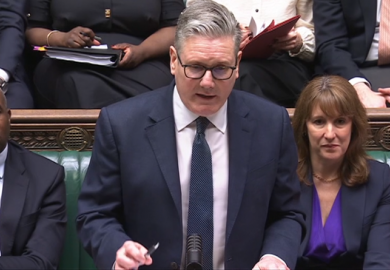The comments come in a Million+ publication launched today to celebrate the 21st anniversary of the 1992 Further and Higher Education Act, which transformed the polytechnics into universities.
Mr Willetts, the universities and science minister, writes: “I still come across curmudgeons who call for the old wall between different higher education institutions to be re-erected, but this is based on a fundamental misunderstanding of the shape and complexity of modern higher education. Just as it is now impossible to see exactly where the Berlin Wall went, it is unthinkable to imagine cleaving our higher education sector in two again.”
The minister praises the legacy of polytechnics in pioneering modular courses, employer engagement, and expansion in student numbers.
But he adds that “they would have been called universities elsewhere in the world and the binary system was ripe for change by 1992. It is right to mark the 21st anniversary of the change in status by celebrating the universities’ continuing success”.
Although the binary divide is gone “some of the snobbery remains alive and kicking”, writes Caroline Gipps, former University of Wolverhampton vice-chancellor, and Pam Tatlow, Million+ chief executive, in their introduction to the publication, titled Breaking with Tradition.
Another contributor is Sadiq Khan, Labour’s shadow justice minister and a graduate of what is now London Metropolitan University.
He writes: “Some of our greatest universities are rightly applauded for their academic brilliance and they are up there with the best universities in the world, but I question how much they represent the vast talent of the British public.
“Modern universities on the other hand, whilst not often mentioned in the same breath as Oxford and Cambridge, arguably provide the tools to enable greater access to further and higher education. The ‘value added’ in some of these universities is impressive.”
And he also says: “I believe that modern universities can teach their more established forebears about running a truly modern educational institution.”
Register to continue
Why register?
- Registration is free and only takes a moment
- Once registered, you can read 3 articles a month
- Sign up for our newsletter
Subscribe
Or subscribe for unlimited access to:
- Unlimited access to news, views, insights & reviews
- Digital editions
- Digital access to THE’s university and college rankings analysis
Already registered or a current subscriber?




